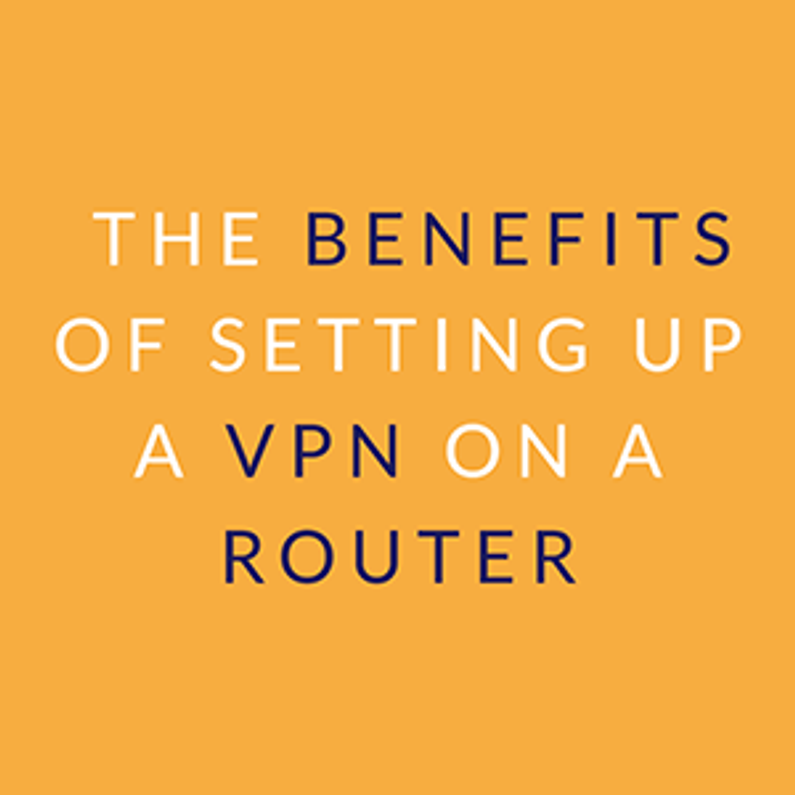The Benefits of Setting Up a VPN on a Router
Today, using a VPN is the fastest and easiest way to protect your privacy while browsing the internet. Without being connected through a VPN, all your personal data is vulnerable to anyone who might want to intercept and read your traffic. This includes ISPs, authority agencies, as well as potentially, cybercriminals.
That being said, it’s no surprise that privacy-conscious internet users are increasingly turning to VPN software providers to ensure their online activity is kept safe and secure from prying eyes.
The easiest way to protect yourself with a VPN is to install the application on the device that you wish to protect. However, there are no VPN services that are capable of supporting all platforms on all the devices that you might use to access the internet.
Protecting Your Devices with a VPN Router
Even if a VPN provider wanted to support all types of available devices, there are still plenty of gadgets and devices that simply don’t support VPN applications.
This includes more niche devices, such as smart TVs, wireless thermostats, and digital cameras, which are being increasingly targeted by cybercriminals due to their lack of protection. As the number of wireless devices continues to grow, it’s becoming virtually impossible for VPN providers to support all of them.
Therefore, the best way to ensure privacy on all your devices is to provide VPN protection to your entire network, as opposed to protecting each device separately. This can be achieved by setting up a VPN on your router.
Below, we’ll take a look at the main benefits that come with setting up a VPN on a router.
Network-Wide Security
Using a VPN on a router can be compared to a firewall used on a network. Firewalls protect the entire network by monitoring and policing all incoming and outgoing traffic while blocking any malicious data caught passing through.
Although all Windows computers, for example, have a built-in software firewall, this is usually only considered as a secondary security measure whereas the primary firewall is considered to be located on the network’s router.
And, much in the same way that a router uses a firewall to protect the whole network, they can also be configured to use a VPN, which will encrypt all traffic being sent or received over the network. When a VPN is installed on your router, any devices that connect to its network will automatically be encrypted and thus, protected from malicious software or cyber attacks.
Automatic Protection
Since your router will be connected to the internet via a VPN service, you’ll never have to worry about turning the service on or off before connecting.
This may sound like a minor benefit, but for many, this saves time and ensures that they’re always protected as long as they connect to the internet via the router.
Simply stated, even if you forget that you wanted to connect through a VPN, you’ll still be protected by the router’s VPN.
Preventing Wi-Fi Poaching
Another significant advantage to using a VPN on your router is that it can help protect your network from Wi-Fi poachers. Wi-Fi poaching refers to when an uninvited person connects and uses your wireless network without your permission.
Of course, there are other ways to prevent unwanted users on your network. These measures typically include using long and complicated passwords that use numbers, symbols, as well as both uppercase and lowercase letters, and ensuring your router is updated and running the most recent firmware.
However, even with all these measures in place, cybercriminals may still be able to gain access to your network and use it for their own nefarious reasons. But, with a VPN set up directly on your router, yours and the attacker’s devices will automatically be encrypted, meaning that you’ll still have a certain level of safety and anonymity.
This also means that no matter what the attacker may be trying to do on your network, which may be illegal in some cases, it will be impossible to trace the activity back to you.
Learn about how to tell if someone is using your Wi-Fi.
Support for All Platforms
While most VPNs are compatible with the more popular platforms such as Windows and Mac, it is not known how reliable they will be when used on lesser-known operating systems. In some cases, this could potentially limit the number of devices that are protected, especially if you’re using a different VPN client for each individual device.
Therefore, a VPN set up on your router is the absolute best way to ensure that platforms are encrypted and protected.
Recent Posts
-
What You Need to Know to Donate Safely Online
Cybersecurity has become an increasingly critical issue in the digital age. For instance, in 2016, m …Mar 10th 2022 -
What is a Default Gateway?
A default gateway is where all your internet traffic goes first before leaving your network. That’s …Jan 4th 2022 -
Essential Cybersecurity Tools Every Business Needs
IT infrastructures across organizations are now more complex than ever. Given the increasing number …Nov 29th 2021




